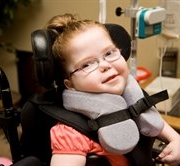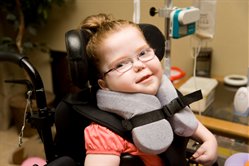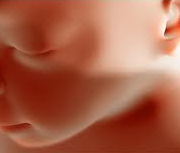Why have we become so scared of disability?
When I went to see the midwife at 36 weeks of pregnancy, I did not expect to find myself leaving in the back of an ambulance.
My BP was 200/115 and there were 4 pluses of protein in my urine. My non-medical husband was bewildered and we both wondered what would happen next.
A few hours later, my BP was 160/100, but an ultrasound had shown that our baby was very small – about the size you’d expect at 28 weeks. There were no structural abnormalities, the cord blood flow and placenta seemed normal and there was no obvious cause for his growth retardation. There were many questions running through our heads.
The consultant came in to discuss this. He suggested we should do an amniocentesis for karyotyping. At first, I couldn’t even decipher the words he was using. Once I grasped what he was suggesting, I asked what the aim would be. I was stunned to hear the answer – to terminate the pregnancy if there was an abnormality.
My husband and I had previously discussed screening. We had decided not to pursue it beyond a basic ultrasound, as we saw our child as a precious gift from God. This would be true whether or not he was perfect in the world’s eyes. We believe God does not make mistakes – if our son was not entirely well, then we would trust that God knew what he was doing and would equip us to cope with the situation.
It was easy to decline the amniocentesis.
The next morning I was still hypertensive. Another consultant came to discuss the day’s plan – to try to control my BP and to continue to delay delivery for as long as possible (up to a week), so that our baby could grow larger, so that there was time for the steroids to mature his lungs and to give time for an amniocentesis. I was better prepared to answer this time around and proposed that as the baby would soon be delivered, we could wait until then to find out if there was a problem.
I remained unwell, so later that day our son was born by Caesarian Section. He was small at 1.67kg, but perfectly formed. He spent just under three weeks on the neonatal unit. Now, three months later, he continues to make good progress.
Looking back, I remain shocked that it is possible to offer amniocentesis at such a late stage in pregnancy to a woman who is severely ill and so might not be able to weigh up the risks and benefits.
I have several questions remaining:
How could it be appropriate (or indeed, legal) to even consider termination in a baby that was nearly term and appeared structurally normal on ultrasound? Even if there was some kind of chromosomal abnormality, it would be hard to argue that there was a serious disability to justify late termination in the presence of a normal scan.
How would termination at this stage have differed from infanticide? Less than 24 hours after amniocentesis was first suggested, our son was admitted to the neonatal unit. He only required minimal support.
It seems deeply ironic that he would have been offered full intensive care support on a day where someone had considered killing him.
I wonder where our profession and society has got to. Have we become so scared of disability that even the slightest possibility of it must be excluded at any cost?
The Bible teaches us that, since sin damaged the world at the fall, creation has been full of suffering – it is no longer perfect (Romans 8:18-24). In the same way, we are not perfect, but have all sinned. Despite this, God chooses to love us and to call us his children, if we know him. This is grace beyond measure.
When he is kind enough to give us children, he asks us to love them in the same way – not because they are perfect, not because they deserve it, but because they have been given to us to love. He has lavished his great love upon us despite our failings and we are called to share some of this love with them, in whatever circumstances we find ourselves. We do this knowing that he has promised finally to make us (and our children) perfect, just as he is.
‘See what great love the Father has lavished on us, that we should be called children of God! And that is what we are! The reason the world does not know us is that it did not know him. Dear friends, now we are children of God, and what we will be has not yet been made known. But we know that when Christ appears, we shall be like him, for we shall see him as he is. All who have this hope in him purify themselves, just as he is pure.’ 1 John 3:1-3
Posted by Dr Karen Forrest
CMF member













Leave a Reply
Want to join the discussion?Feel free to contribute!